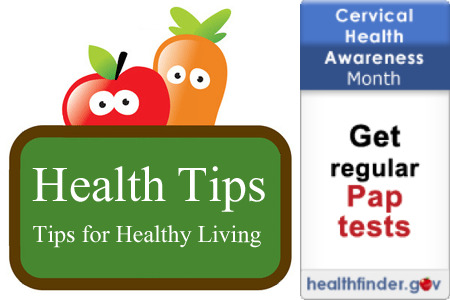
Cervical Health Awareness Month is a chance to raise awareness about how women can protect themselves from HPV (human papillomavirus) and cervical cancer. HPV is a very common infection that spreads through sexual activity. It’s also a major cause of cervical cancer.
About 79 million Americans currently have HPV. Many people with HPV don’t know they are infected. And each year, more than 11,000 women in the United States get cervical cancer. Unfortunately, African American women develop cervical cancer more often than white women and are more than twice as likely to die from it.
The good news?
- The HPV vaccine (shots) can prevent HPV.
- Cervical cancer can often be prevented with regular screening tests (called Pap tests) and follow-up care.
- Cervical cancer screenings can help detect abnormal (changed) cells early, before they turn into cancer.
- Most deaths from cervical cancer could be prevented by regular Pap tests and follow-up care.
How can Cervical Health Awareness Month make a difference?
We can use this opportunity to spread the word about important steps women can take to stay healthy.
Here are just a few ideas:
- Women should get regular Pap tests beginning at age 21.
- Most insurance plans must cover well-woman visits and cervical cancer screening. This means that, depending on your insurance, you can get these services at no cost to them.
- Parents should get and share information about how important it is for their pre-teens (age 11 or 12) to get the HPV vaccine. Both boys and girls need the vaccine.
- Teens and young adults also need to get the HPV vaccine if they didn’t get it as preteens.
- Women up to age 26 and men up to age 21 can still get the vaccine.
How can I help spread the word?
We’ve made it easy for you to make a difference.
Here are some links you can refer to for more information for yourself and those you love:
- Get Tested for Cervical Cancer
http://www.healthfinder.gov/prevention/ViewTopic.aspx?topicId=13 - Get Your Child the HPV Vaccine
https://healthfinder.gov/HealthTopics/Category/parenting/doctor-visits/get-your-child-the-hpv-vaccine - Get Your Well-Woman Visit Every Year
http://www.healthfinder.gov/prevention/ViewTopic.aspx?topicId=98


